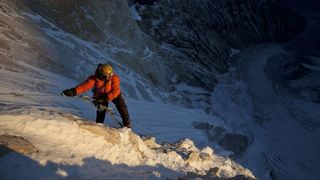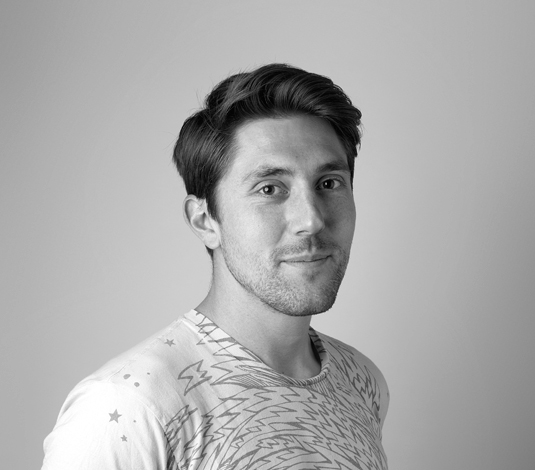MF meets Conrad Anker
The American climber talks inspiration, achievements and barely staying alive in the Himalayas and Antarctica

What inspired you to start mountaineering?
I grew up in the mountains so it was just what we did for fun. We just went hiking and backpacking and then eventually graduated on to climbing more challenging peaks. So my parents introduced me to it at a young age.
Did you have any heroes when you were younger that you looked up to?
My dad and his buddies were always cool and they’d take me out with mules, fishing rods, peanut butter and a frying pan. It was camping in a different way back in the 60s and 70s. So, that was a great introduction to it, and then, as I got into climbing more I started to notice and get inspired by the big heroes like Sir Edmund Hillary. I try now to give that same sense of excitement back by mentoring, and hopefully inspiring, young people.
So for you it was something you did for a bit of fun? It wasn’t to become famous?
I never thought I was going to make a living out of it, so I’m basically living the dream right now. I climb because I enjoy life, and I enjoy life because I climb. We work because we want to enjoy life, and if that’s what you want to do in life then that’s great. If you want to play cards or you want to ride a bike, whatever you want do, have that be your happiness.
The sense of achievement must be massive. Is that one of the things that drives you – wanting to better yourself?
For me it’s experiential, its being in that moment and being in that location. So much of it is where you’re putting yourself and how you enjoy that. I was walking through Trafalgar Square today and that’s a great place to be. Nelson’s Column, all the people there and the history – it’s exceptional. Being in the moment is always the most important thing. It’s not all about the end goal.
Of all the things you’ve done, is there a specific moment you would say was the hardest?
With climbing, once you know what’s going on and you’ve learned the ropes, you always understand and know what to do in any given situation. Most climbers that have been doing it for an extended period of time eventually experience death in some form. So that’s the most difficult part, losing friends in the mountains and coming to terms with your own mortality. I’ve buried three really good friends. But it makes you live in the moment and accept your own mortality. People tend to ignore death and accept the glorified version we see on television, which isn’t healthy.
Have any particular moments made you consider quitting mountaineering?
Every time I go out climbing I ask myself if I’m doing the right thing. If you’re not constantly running through that risk assessment in your head then you’ll get in trouble and overstep your abilities. For example, if I were to drive an F1 car I’d probably crash it into a wall – I’d be out of my element. I’ve stuck within my abilities, so thankfully I haven’t had any truly scary moments.
What sort of exercises do you do? Do you have any set routines?
Most of mountaineering is based on experience and technical knowhow for working ropes and such. Training-wise, the best way to get in shape is to keep your fitness levels up at all times by being active every day, even if it’s just small things – running upstairs two at a time, not taking the escalator, or walking places instead of taking a bus or driving. Focusing on my core is also important. Plus, if your core is good you have good posture, and if you have good posture your belly doesn’t hang out.
Every Tuesday I do yoga for two hours, I just like it because it’s good stretching – I’m not in touch with any of that groovy shit! Running, Nordic skiing, things like that are all good too. If I lift weights I tend to build muscles that I don’t need for climbing. You go to gyms sometimes and see big muscle-bound guys who look ridiculous, and their muscles serve no real practical purpose.
Would you say mountaineering is more of a physical or mental challenge?
Climbers usually have a higher pain threshold than most people, so they can endure pain and put it aside. A sense of commitment, the drive to finish something that you’ve started, is also a key factor. I’ve found that if I think I can’t make it and chicken out before the summit, what I do to myself afterwards – my internal beat-down – is going to be far worse than the pain of finishing the climb. Again though, this comes back to the idea of only setting objectives that are within your ability, otherwise you would be in trouble rather than just a bit of discomfort and tiredness.
To what extent does technology affect your mountaineering?
Technology has certainly made things easier. We’re all connected now, we have satellite-driven GPS and things like that. You think back to the time of Shackleton and Mallory and they had none of this. But that elemental fear of being out there, the self-challenge, it’s still there. You’ll still be able to find that by going out into the mountains.
What plans have you got for the future? Is there anything you haven’t done that you would like to?
Well I’d like to climb an 8A, which is a super-tough climbing rating. It’s basically hard rock climbing, so really focusing on my training and flexibility would be essential for this. Raising awareness on climate change is something else I want to do more of. We’re seeing it first-hand up in the high mountains, way more so than you do in any other places.
How do you plan your food while you’re on expeditions?
At home or travelling I eat healthy, organic food. I don’t eat huge portions like in the USA. I prefer it in the UK, drinking tea and small doses of things, a little bit of toast, grains, yoghurt. I think most people could benefit from learning to live on fewer calories. When you’re on an expedition it’s about getting the calories into your body, going for simpler things such as oatmeal with soy-based protein powder and dehydrated blueberries for breakfast, two energy bars during the day, and couscous at night with olive oil and pork fat. We have the same food day in day out. You have more fun if you starve yourself, you feel more on the edge and you realise you don’t need so much. I lost eight to nine kilos when I was on Everest, then gained it when I got back. It’s all about keeping your metabolism on its toes. A medical research clinic studied my body during the expedition to Everest and found that I’m physically 20 years younger than what a normal person should be at my age, especially with things like bone density. So there must be something about fasting and restricted calorie diets that’s beneficial to the human body.
So you don't really eat a lot while on an expedition?
On the summit of Everest this year I barely had anything – a litre of watered-down coffee and two energy gels a day. You know, you have a lack of appetite and I was basically climbing Everest without oxygen. That meant I was in a state of congestive heart failure for a period of 72 hours. I should’ve died, but somehow I didn’t. But because I didn’t, I came back stronger from it. My big concern was that I was cooking too many brain cells, but I play online chess and Sudoku when I travel to keep myself sharp.
Conrad Anker is sponsored by The North Face. To find out more, check out his profile on The North Face website.
For more exclusive interviews with the world's best athletes, subscribe to MF - we'll give you five issues for £5.
Get the Coach Newsletter
Sign up for workout ideas, training advice, reviews of the latest gear and more.
The new MF interactive iPad magazine is out now. Click here to download it.
Max was the head of digital content for Men's Fitness which worked alongside Coach between 2015 and 2019.

